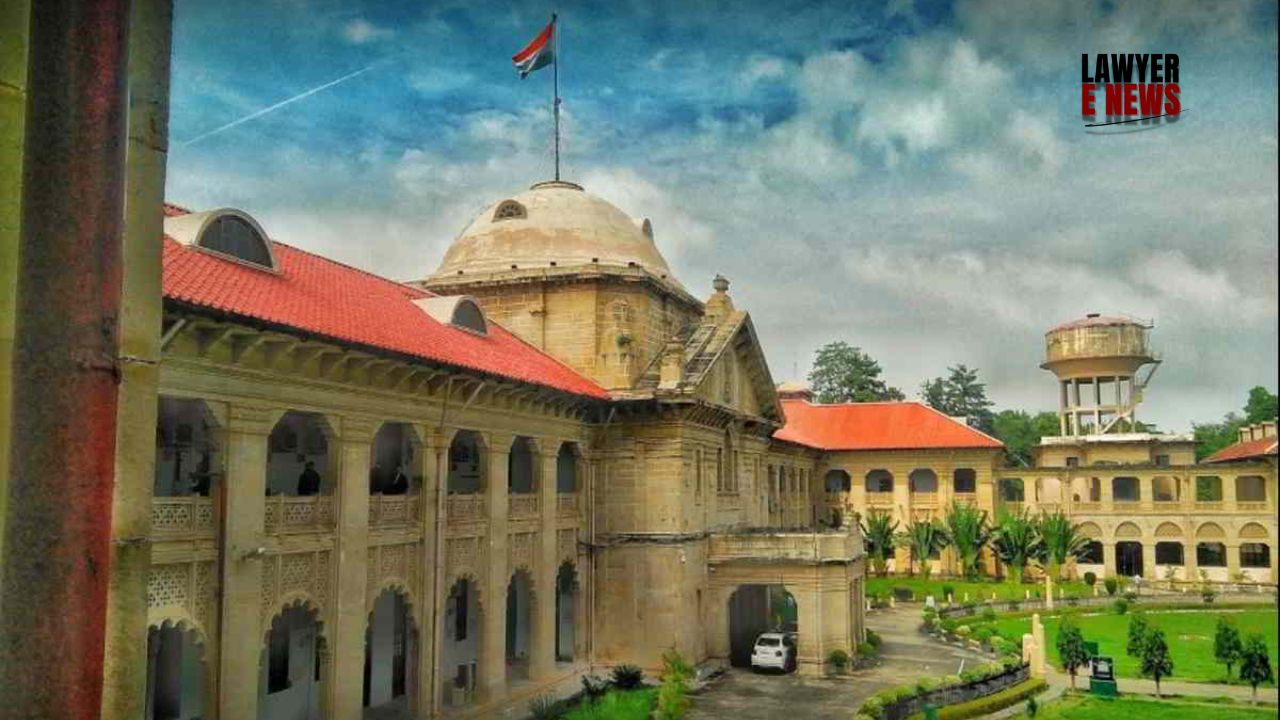-
by Admin
15 February 2026 5:35 AM



High Court overturns lower court convictions in Neeta Singh and Shiv Tilak Singh murders, citing unreliable witness testimonies and mishandled evidence.
The Allahabad High Court has acquitted four individuals previously convicted in the high-profile murders of Neeta Singh and Shiv Tilak Singh. In a detailed judgment, the court highlighted significant flaws in witness testimonies, procedural lapses in evidence handling, and inconsistencies in the First Information Report (FIR). The ruling, delivered by a bench comprising Justices Siddhartha Varma and Vinod Diwakar, underscores the importance of rigorous scrutiny of evidence and procedural integrity in criminal cases.
On the night of 5th March 2009, Neeta Singh and Shiv Tilak Singh were shot dead at their residence in Kanpur Nagar. According to the FIR lodged at 23:00 hours, Neeta Singh answered the door to find the accused, who demanded the whereabouts of her husband, Narendra Kumar @ Puti. The altercation escalated, and the assailants, armed with revolvers and country-made pistols, dragged Neeta Singh and Shiv Tilak Singh downstairs, eventually shooting them in the portico. The police arrested the accused based on an investigation that included the recovery of firearms and ballistic evidence linking them to the crime scene. The trial court convicted the accused, leading to their appeals in the High Court.
Credibility of FIR: The court questioned the authenticity of the FIR lodged on 5th March 2009 at 23:00 hours, noting several inconsistencies in time entries and document maintenance. The court observed overwriting in the FIR dates and improper documentation, casting doubt on its reliability. "The overwriting on the FIR and the discrepancy in document maintenance significantly undermine the credibility of the prosecution's timeline," the bench noted [Paras 30, 33, 38].
Witness Testimonies: The High Court scrutinized the testimonies of key witnesses, especially PW-2 and PW-3, raising doubts about their reliability. PW-2, the informant, was deemed a chance witness whose explanation for his presence at the crime scene was found unconvincing. The court remarked, "The reason provided by PW-2 for his presence at the scene lacks consistency and credibility, marking him as an unreliable witness" [Paras 33-34].
Similarly, PW-3, a child witness, gave inconsistent statements about her school and injuries, leading the court to stress the need for cautious evaluation. "The testimony of PW-3 showed signs of tutoring and contradictions, necessitating careful scrutiny," the court observed [Paras 35, 37].
Ballistic Evidence: The forensic report indicated that the bullets retrieved from the bodies did not match the firearms allegedly used, raising questions about the integrity of the ballistic evidence. The court noted procedural lapses in handling and recording ballistic evidence, stating, "The mishandling of ballistic evidence and the delay in submitting it to the forensic laboratory cast serious doubts on the prosecution's case" [Paras 37].
The judgment elaborated on the principles of evaluating evidence, emphasizing that a conviction must rest on reliable and credible testimonies corroborated by objective evidence. The court remarked, "In this case, the inconsistencies in witness testimonies and the mishandling of evidence severely weaken the prosecution's case."
Justice Vinod Diwakar stated, "The presence of overwriting in the FIR and the procedural lapses in handling ballistic evidence significantly undermine the prosecution's credibility. The court must be vigilant in ensuring that the evidence presented meets the highest standards of integrity."
The High Court's decision to acquit the appellants underscores the judiciary's commitment to upholding justice through meticulous scrutiny of evidence and adherence to procedural protocols. This landmark judgment serves as a critical reminder of the need for reliability and integrity in criminal investigations and prosecutions. The acquittal of Sushil Kumar Dwivedi @ Sonu Dwivedi, Anil Kumar Shukla, Santosh Kumar Dwivedi @ Guddu Dwivedi, and Shrawan Kumar Shukla @ Tanu Shukla will likely influence future cases, highlighting the importance of credible witness testimonies and proper evidence handling.
Date of Decision: 14th May 2024
